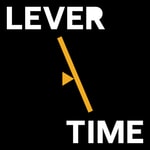New Things Under the Sun – Details, episodes & analysis
Podcast details
Technical and general information from the podcast's RSS feed.

New Things Under the Sun
Matt Clancy
Frequency: 1 episode/18d. Total Eps: 66

Recent rankings
Latest chart positions across Apple Podcasts and Spotify rankings.
Apple Podcasts
🇺🇸 USA - socialSciences
20/07/2025#99🇺🇸 USA - socialSciences
19/07/2025#95🇺🇸 USA - socialSciences
17/07/2025#100🇬🇧 Great Britain - socialSciences
14/07/2025#90🇬🇧 Great Britain - socialSciences
13/07/2025#72🇬🇧 Great Britain - socialSciences
12/07/2025#54🇨🇦 Canada - socialSciences
05/05/2025#98🇨🇦 Canada - socialSciences
04/05/2025#87🇨🇦 Canada - socialSciences
03/05/2025#71🇨🇦 Canada - socialSciences
02/05/2025#49
Spotify
No recent rankings available
Shared links between episodes and podcasts
Links found in episode descriptions and other podcasts that share them.
See all- https://twitter.com/ArnaudDyevre
2 shares
RSS feed quality and score
Technical evaluation of the podcast's RSS feed quality and structure.
See allScore global : 68%
Publication history
Monthly episode publishing history over the past years.
The Decline in Writing About Progress
Season 1 · Episode 61
jeudi 15 août 2024 • Duration 26:50
The frequency of words associated with "progress" in English, German, and French books rose during the era of industrialization, but is down since the 1950s, at least according to google. Is this a signal of declining cultural interest in progress, as a concept? Or just an artifact of how google constructed its text corpus?
This podcast is an audio read through of the (initial version of the) article The Decline in Writing About Progress, originally published on New Things Under the Sun.
Incentives to Invent at Universities
Season 1 · Episode 60
jeudi 15 août 2024 • Duration 19:37
Prior to the 2000s, many European countries practiced something called “the professor’s privilege” wherein university professors retained patent rights to inventions they made while employed at the university. This was a “privilege” because the norm is for patent ownership to be assigned to the organization that employs an inventor; professors were an exception to this norm. American universities, in contrast, had long followed a different approach, where patent rights were typically assigned to the university, who managed commercialization efforts. Professors then split the proceeds of commercializing their inventions with the university.
There had long been a sense that commercialization of university research worked better in America, and in the 2000s a number of European countries reformed their laws to move them closer in spirit to the American system. Professors lost their privilege and universities got more into the commercialization game.
If the goal of this reform was to encourage more professors to invent things that could be commercialized, several papers indicate this policy was a mistake.
This podcast is an audio read through of the (initial version of the) article Incentives to Invent at Universities, originally published on New Things Under the Sun.
Articles mentioned
Hvide, Hans K., and Benjamin F. Jones. 2018. University innovation and the professor's privilege. American Economic Review, 108 (7): 1860–98. https://doi.org/10.1257/aer.20160284
Ejermo, Olof, and Hannes Toivanen. 2018. University invention and the abolishment of the professor's privilege in Finland. Research Policy 47 (4): 814-825. https://doi.org/10.1016/j.respol.2018.03.001.
Czarnitzki, Dirk, Thorsten Doherr, Katrin Hussinger, Paula Schliessler, and Andrew A Toole. 2017. Individual versus institutional ownership of university-discovered inventions. USPTO Economic Working Paper No. 2017-07. http://dx.doi.org/10.2139/ssrn.2995672
Valentin, F., and R.L. Jensen. 2007. Effects on academia-industry collaboration of extending university property rights. J Technol Transfer 32: 251–276. https://doi.org/10.1007/s10961-006-9015-x
Ouellette, Lisa Larrimore, and Andrew Tutt. 2020. How do patent incentives affect university researchers? International Review of Law and Economics 61. https://doi.org/10.1016/j.irle.2019.105883.
Teacher Influence and Innovation
Season 1 · Episode 51
vendredi 15 décembre 2023 • Duration 33:11
Here’s a striking fact: through 2022, one in two Nobel prize winners in physics, chemistry, and medicine also had a Nobel prize winner as their academic advisor.undefined
What accounts for this extraordinary transmission rate of scientific excellence? In this podcast I’ll focus one potential explanation: what do we know about how innovative teachers influence their students, and their students’ subsequent innovative career? I’ll focus on two strands of literatures: roughly speaking, how teachers influence what their students are interested in and the impact of their work.
This podcast is an audio read through of the (initial version of the) article "Teacher Influence and Innovation," originally published on New Things Under the Sun.
Borowiecki, Karol Jan. 2022. Good Reverberations? Teacher Influence in Music Composition since 1450. Journal of Political Economy 130(4): 991-1090. https://doi.org/10.1086/718370
Koschnick, Julius. 2023. Teacher-directed scientific change: The case of the English Scientific Revolution. PhD job market paper.
Azoulay, Pierre, Christopher C. Liu, and Toby E. Stuart. 2017. Social Influence Given (Partially) Deliberate Matching: Career Imprints in the Creation of Academic Entrepreneurs. American Journal of Sociology 122(4): 1223-1271. https://doi.org/10.1086/689890
Biasi, Barbara, and Song Ma. 2023. The Education-Innovation Gap. NBER Working Paper 29853. https://doi.org/10.3386/w29853
Waldinger, Fabian. 2010. Quality Matters: The Expulsion of Professors and the Consequences for PhD Student Outcomes in Nazi Germany. Journal of Political Economy 118(4): 787-831. https://doi.org/10.1086/655976
When Research Over There Isn't Helpful Here
Season 1 · Episode 50
vendredi 17 novembre 2023 • Duration 14:58
Much of the world’s population lives in countries in which little research happens. Is this a problem? According to classical economic models of the “ideas production function,” ideas are universal; ideas developed in one place are applicable everywhere.
This is probably true enough for some contexts; but not all. In this post we’ll look at four domains - agriculture, health, the behavioral sciences, and program evaluation research - where new discoveries do not seem to have universal application across all geographies.
This podcast is an audio read through of the (initial version of the) article "When research over there isn't helpful here," originally published on New Things Under the Sun.
Articles mentioned
Comin, Diego, and Marti Mestieri. 2014. Technology diffusion: Measurement, causes, and consequences. In Handbook of economic growth, Vol. 2, 565-622. Elsevier. https://doi.org/10.1016/B978-0-444-53540-5.00002-1
Verhoogen, Eric. Forthcoming. Firm-level upgrading in developing countries. Journal of Economic Literature. (link)
Moscona, Jacob, and Karthik Sastry. 2022. Inappropriate technology: Evidence from global agriculture. SSRN working paper. https://doi.org/10.2139/ssrn.3886019
Wilson, Mary Elizabeth. 2017. The geography of infectious diseases. Infectious Diseases: 938–947.e1. https://doi.org/10.1016%2FB978-0-7020-6285-8.00106-4
Wang, Ting, et al. 2022. The Human Pangenome Project: a global resource to map genomic diversity. Nature 604(7906): 437-446. https://doi.org/10.1038/s41586-022-04601-8
Hotez, Peter J., David H. Molyneux, Alan Fenwick, Jacob Kumaresan, Sonia Ehrlich Sachs, Jeffrey D. Sachs, and Lorenzo Savioli. 2007. Control of neglected tropical diseases. New England Journal of Medicine 357(10): 1018-1027. https://doi.org/10.1056/NEJMra064142
Henrich, Joseph, Steven J. Heine, and Ara Norenzayan. 2010. The weirdest people in the world? Behavioral and Brain Sciences 33(2-3): 61-83. https://doi.org/10.1017/S0140525X0999152X
Apicella, Coren, Ara Norenzayan, and Joseph Henrich. 2020. Beyond WEIRD: A review of the last decade and a look ahead to the global laboratory of the future. Evolution and Human Behavior 41(5): 319-329. https://doi.org/10.1016/j.evolhumbehav.2020.07.015
Klein Richard A., et al. 2018. Many Labs 2: Investigating Variation in Replicability Across Samples and Settings. Advances in Methods and Practices in Psychological Science. 2018;1(4):443-490. https://doi.org/10.1177/2515245918810225
Schimmelpfennig, Robin, et al. 2023. A Problem in Theory and More: Measuring the Moderating Role of Culture in Many Labs 2. PsyArXiv. https://doi.org/10.31234/osf.io/hmnrx.
Vivalt, Eva. 2020. How much can we generalize from impact evaluations? Journal of the European Economic Association18(6): 3045-3089. https://doi.org/10.1093/jeea/jvaa019
Vivalt, Eva, Aidan Coville, and K. C. Sampada. 2023. Tacit versus Formal Knowledge in Policy Decisions.
Big Firms Have Different Incentives
Season 1 · Episode 49
jeudi 24 août 2023 • Duration 18:29
This week, Arnaud Dyèvre (@ArnaudDyevre) and I follow up on a previous podcast, where we documented a puzzle: larger firms conduct R&D at the same rate as smaller firms, despite getting fewer (and more incremental) innovations per R&D dollar. Why wouldn’t firms decelerate their research spending as the return on R&D apparently declines? In this follow-up podcast, we look at one explanation: firms of different sizes face different incentives when it comes to innovation.
This podcast is an audio read through of the (initial version of the) article "Big firms have different incentives", originally published on New Things Under the Sun.
Geography and What Gets Researched
Season 1 · Episode 48
mardi 8 août 2023 • Duration 17:57
How do academic researchers decide what to work on? Part of it comes down to what you judge to be important and valuable; and that can come from exposure to problems in your local community.
This podcast is an audio read through of the (initial version of the) article "Geography and What Gets Researched", originally published on New Things Under the Sun.
How to Impede Technological Progress
Season 1 · Episode 47
jeudi 13 juillet 2023 • Duration 36:52
Most of the time, we think of innovation policy as a problem of how to accelerate desirable forms of technological progress. But there are other times when we may wish to actively slow technological progress. The AI pause letter is a recent example, but less controversial examples abound. A lot of energy policy acts as a brake on the rate of technological advance in conventional fossil fuel innovation. Geopolitical rivals often seek to impede the advance of rivals’ military technology.
Today I want to look at policy levers that actively slow technological advance, sometimes (but not always) as an explicit goal.
This podcast is an audio read through of the (initial version of the) article "How to impede technological progress", originally published on New Things Under the Sun.
The Great Inflection? A Debate About AI and Explosive Growth with Tamay Besiroglu
Season 1 · Episode 47
dimanche 25 juin 2023 • Duration 01:38:38
This is not the usual podcast on New Things Under the Sun.
For the third issue of Asterisk Magazine, Tamay Besiroglu and I were asked to write an article on how likely it is that artificial intelligence will lead to not just faster economic growth, but explosive economic growth. (Tamay will introduce himself in a minute here).
Since we wrote that article as a literal dialogue, we thought it would be fun to also record ourselves performing the parts we wrote for ourselves and that is what we bring to you on this very special edition of New Things Under the Sun. During this podcast, you’ll hear two voices - mine and Tamay’s - as we perform our debate about the potential for explosive economic growth after we develop sufficiently advanced artificial intelligence.
Then, after about an hour, our performance of the article will wrap up, but we keep talking. For another forty minutes, we talk a bit about policy implications of artificial intelligence, the prospects for spooky smart AI, and how our own views have evolved on this topic.
If you want to read our article instead of listening, head over to here. If you’ve already read that and just want to hear some of our extra commentary, jump to about one hour into this podcast. Special thanks to Clara Collier, Asterisk’s Editor-in-Chief, for reaching out to us and giving us this opportunity.
The Size of Firms and the Nature of Innovation
Season 1 · Episode 46
vendredi 2 juin 2023 • Duration 17:23
We’ve got something new this week! This is post, which is on how the size of firms is related to the kind of innovation they do, is the first ever collaboration published on New Things Under the Sun. My coauthor is Arnaud Dyèvre (@ArnaudDyevre), a PhD student at the London School of Economics working on growth and the economic returns to publicly funded R&D. Going into this post, Arnaud knew this literature better than me and drew up an initial reading plan. We iterated on that for awhile, jointly discovering important papers, and eventually settled on a set of core papers, which we’ll talk about in this post. I think this turned out great and so I wanted to extend an invitation to the rest of you - if you want to coauthor a post with me, go to newthingsunderthesun.com/collaborations to learn more.
One last thing; I want to assure listeners that, as in all my posts, I read all the papers that we talk about in detail in the following podcast. There is no division of labor between coauthors on that topic, because I view part of my job as making connections between papers, and I think that works better if all the papers covered on this site are bouncing around in my brain, rather than split across different heads. So what you are about to hear is not half Arnaud and half me, it’s all him and all me, all the time.
Articles mentioned
When Technology Goes Bad
Season 1 · Episode 45
mardi 16 mai 2023 • Duration 29:33
Innovation has, historically, been pretty good for humanity. But technology is just a tool, and tools can be used for good or evil purposes. So far, technology has skewed towards “good” rather than evil but there are some reasons to worry things may differ in the future.
What does science and technology policy look like in a world where we can no longer assume that more innovation generally leads to more human flourishing? It’s hard to say too much about such an abstract question, but a number of economic growth models have grappled with this idea.
This podcast is an audio read through of the (initial version of the) article "When technology goes bad", originally published on New Things Under the Sun.
Articles Mentioned:
Jones, Charles. 2016. Life and Growth. Journal of Political Economy, 124 (2): 539 - 578. http://dx.doi.org/10.1086/684750
Jones, Charles. 2023. The A.I. Dilemma: Growth versus Existential Risk. Working paper.
Singla, Shikhar. 2023. Regulatory Costs and Market Power. LawFin WP 47. http://dx.doi.org/10.2139/ssrn.4368609
Aschenbrenner, Leopold. 2020. Existential risk and growth. Global Priorities Institute Working Paper 6-2020. Link.
Acemoglu, Daron, Philippe Aghion, Leonardo Bursztyn, and David Hemous. 2012. The Environment and Directed Technical Change. American Economic Review 102 (1): 131-66. http://dx.doi.org/10.1257/aer.102.1.131









